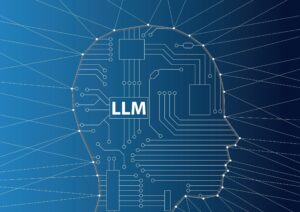(Picture courtesy of Fortanix)
No pc will be utterly secure except it’s buried underneath six ft of concrete. Nonetheless, with sufficient forethought in creating a layered safety structure, knowledge will be protected sufficient that Fortune 500 firms really feel comfy utilizing it for generative AI, says Anand Kashyap, CEO and co-founder of the agency. Fortanix safety.
In the case of GenAI, there are a selection of issues maintaining chief data safety officers (CISOs) and their C-Suite colleagues up at evening. To start with, there may be the opportunity of workers sending delicate knowledge to a public giant language mannequin (LLM), akin to Gemini or GPT-4. There’s a chance that this knowledge enters and leaves the LLM.
Restoration Augmented Technology (RAG) can scale back these dangers to some extent, however embeddings saved in vector databases nonetheless should be shielded from prying eyes. Then there may be hallucinations and toxicity points to be addressed. And entry management is a perennial problem that may journey up even probably the most fastidiously designed safety plan.
Fixing these safety points round GenAI is a giant precedence for firms proper now, says Kashyap in a latest interview with BigDATAwire.
“Massive firms perceive the dangers. They’re very hesitant to implement GenAI for every little thing they want to use it for, however on the identical time, they do not need to miss out on something,” he says. “There’s a enormous worry of lacking out.”
Fortanix develops instruments that assist a few of the world’s largest organizations defend their knowledge, together with Goldman Sachs, VMware, NEC, GE Healthcare, and the Division of Justice. On the coronary heart of the corporate’s providing is a confidential computing platform, which makes use of encryption and tokenization applied sciences to permit prospects to course of delicate knowledge in an atmosphere protected by a {hardware} safety module (HSM).
In response to Kashyap, Fortune 500 firms can securely take part in GenAI utilizing a mixture of Fortanix’s confidential computing platform plus different instruments, akin to role-based entry management (RBAC) and a firewall with real-time monitoring capabilities. .
“I feel a mixture of correct RBAC and using confidential computing to guard a number of components of this AI course of, together with the LLM, together with the vector database, and correct insurance policies and configurations which are monitored in actual time, I feel that “It may well assure that the information can stay protected in a a lot better means than the rest on the market,” he says.
A knowledge discovery and cataloging software that may establish delicate knowledge first, in addition to including new delicate knowledge over time, is one other addition that firms ought to add to their GenAI safety stack, says the safety govt.
“I feel a mixture of all of this, and ensuring that all the stack is protected by confidential computing, will give confidence to any Fortune 500, Fortune 100 authorities entity to have the ability to deploy GenAI with confidence,” Kashyap says.
Nonetheless, there are caveats (there all the time are in safety). As talked about above, Fortune 500 firms are a little bit timid about GenAI proper now, because of a number of high-profile incidents the place delicate knowledge discovered its means into public fashions and was leaked in sudden methods. That is main these firms to err on the aspect of warning with GenAI and solely give the inexperienced gentle to probably the most fundamental chatbot and co-pilot use circumstances. As GenAI improves, these firms will come underneath rising stress to develop its use.
Probably the most delicate firms are avoiding using public LLMs altogether because of the danger of information leaks, says Kashyap. They might use a RAG method as a result of it permits them to maintain their delicate knowledge near them and solely ship prompts. Nonetheless, some establishments are hesitant to even use RAG strategies due to the necessity to correctly defend the vector database, says Kashyap. As a substitute, these organizations are creating and coaching their very own LLMs, usually utilizing open supply fashions like Fb’s Llama-3 or MistralThe fashions.
“In case you’re nonetheless involved about knowledge breaches, you need to most likely do your individual LLM,” he says. “My advice can be that firms or firms which are involved about delicate knowledge don’t use an externally hosted LLM in any respect, however fairly use one thing that they will run, that they will personal, that they will handle, and that they will look at.”
Fortanix is at present creating one other layer within the GenAI safety stack: an AI firewall. In response to Kashyap, this resolution (which he says at present has no supply schedule) will enchantment to organizations that need to use a publicly accessible LLM and need to maximize their safety safety round it.
“What it is advisable do for an AI firewall is have a discovery engine that may search for delicate data, and then you definately want a safety engine, that may redact it or possibly tokenize it or have some sort of reversible encryption.” ” says Kashyap. “After which if you understand how to deploy it on the community, that is it.”
Nonetheless, the AI firewall will not be an ideal resolution, he says, and use circumstances involving probably the most delicate knowledge will doubtless require the group to undertake its personal LLM and run it internally, he says. “The issue with firewalls is that there are false positives and false negatives. You may’t cease every little thing and then you definately cease an excessive amount of,” he says. “It will not resolve each use case.”
GenAI is tremendously altering the information safety panorama and forcing firms to rethink their approaches. The emergence of recent strategies, akin to confidential computing, gives extra layers of safety that may give firms the boldness to maneuver ahead with GenAI expertise. Nonetheless, even probably the most superior safety expertise will do no good to a enterprise if it would not take fundamental steps to guard its knowledge.
“The actual fact of the matter is that folks do not even do fundamental encryption of information in databases,” says Kashyap. “Quite a lot of knowledge is stolen as a result of it wasn’t even encrypted. So there are some firms which are extra superior. Quite a lot of them are means behind and so they’re not even doing fundamental knowledge safety, knowledge safety, fundamental encryption. And that might be a begin. From there, you proceed to enhance your safety standing and posture.”
Associated articles:
GenAI is placing knowledge in danger, however firms are adopting it anyway
ChatGPT Development Spurs GenAI Knowledge Locks



